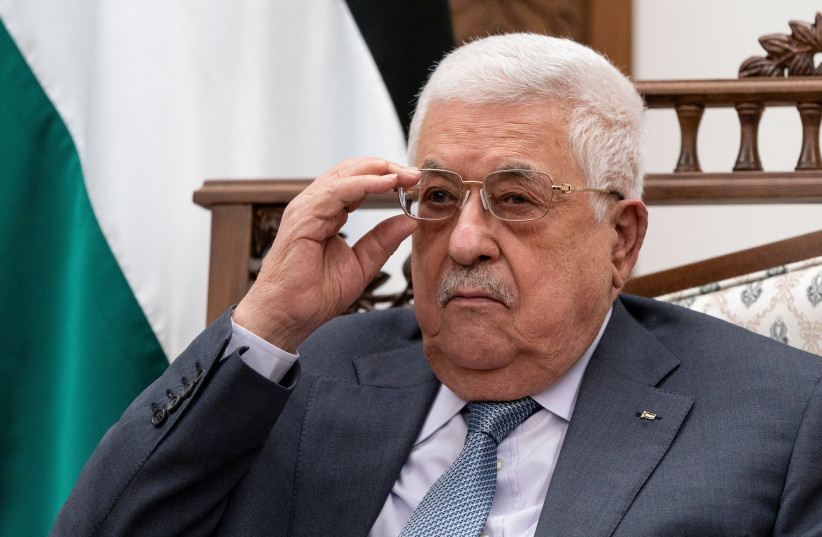Palestinian Authority President Mahmoud Abbas this week invited all Israeli ministers to visit Ramallah and meet with him, in the wake of a meeting with members of the Meretz party.
“We don’t have to agree with one another, we just have to talk,” Abbas told the Meretz delegation. He appeared to break new ground in discussions with Health Minister Nitzan Horowitz and Regional Cooperation Minister Esawi Frej. Meretz faction head MK Michal Rozin also attended.
This meeting was one of several positive signals that have come not only from Abbas but also from the new Israeli government showing its openness to meet with the Palestinian leadership. The problem is that these meetings are generally Janus-faced. While Abbas has consistently made comments directed at Israel and the international community that appear moderate, he has continued to enable the incitement and reactionary views among Palestinians that harm peace.
The Abbas doctrine is one that has been cemented in the decades since the Oslo Accords. It boils down to this: Talk peace while encouraging incitement among the Palestinian public. The theory presented to foreign diplomats and the media about why this has to be the case is that the Palestinian public won’t accept leaders who “collaborate” or “normalize” relations with Israel. Therefore they must be raised to believe in the Right of Return, Jerusalem as a Palestinian capital and the destruction of Israel. Terrorists who murder civilians get rewarded financially by the Palestinian Authority. There is literally an incentive for terror. Palestinians who talk peace are ostracized and even threatened. The Palestinian academic Mohammed Dajani, for instance, was a target of incitement years go when he took his Palestinian students to visit Auschwitz.
On the one hand, Ramallah works well with Israel’s security forces, mostly behind the scenes. Although terrorists get financial support, large terror networks generally do not operate successfully from Palestinian-controlled areas. That may be simple cynical calculus on Abbas’ part. He doesn’t want to be overthrown after decades in power and he doesn’t want any kind of militant power center to form. So he manages the conflict carefully. He wants Palestinians to mostly stay out of the public square and not protest his endless rule. That is why critics are disappeared.

For Israel, this presents a challenge. The previous Israeli government preferred it this way. Netanyahu didn’t want talks or movement on the Oslo process. He wanted the Palestinians divided into the Hamas-run Gaza and the PA-run Ramallah. He believed this would erode the Palestinian national movement until a point that no one cared about their cause. From his perspective, he was right and it appears that the new Israeli government led by Naftali Bennett has adopted aspects of this policy.
However, reducing the conflict or simply ignoring it is only one type of policy. When it comes to meetings with Abbas, which the Palestinian leader appears to want, Israel must ask what is it going to get out of the equation. Will Abbas alter his tolerance for incitement? Will he stop paying salaries to convicted murderers?
Meanwhile, a Hamas delegation is in Egypt this week to discuss ongoing efforts to reach a prisoner exchange with Israel, and continuing attempts concerning an agreement for calm between Gaza and Israel. It is not clear what will come of this, but since Operation Guardian of the Walls in May, Hamas has been trying to upgrade its influence in the region and throughout the West Bank. This has ramifications as Israel has had to crack down on Hamas cells.
Overall, this is the context of the Abbas outreach. He wants to meet Israelis but he is not ready to make any changes. He wants the status quo and his endless rule.
Israel must face this with caution. Talk is good and moderation - including confidence-building measures - is important. However, the Palestinian leadership should be held accountable for its two-faced approach which seeks to slam Israel internationally and reach out locally.
